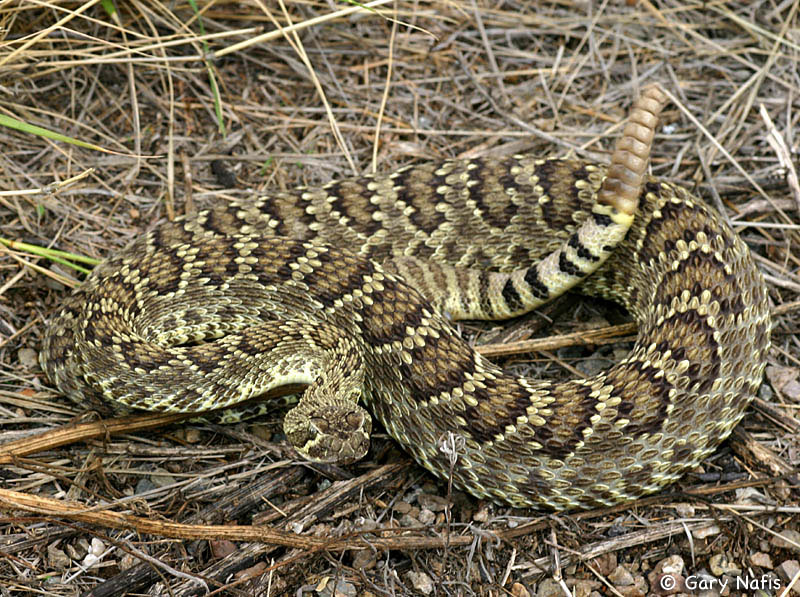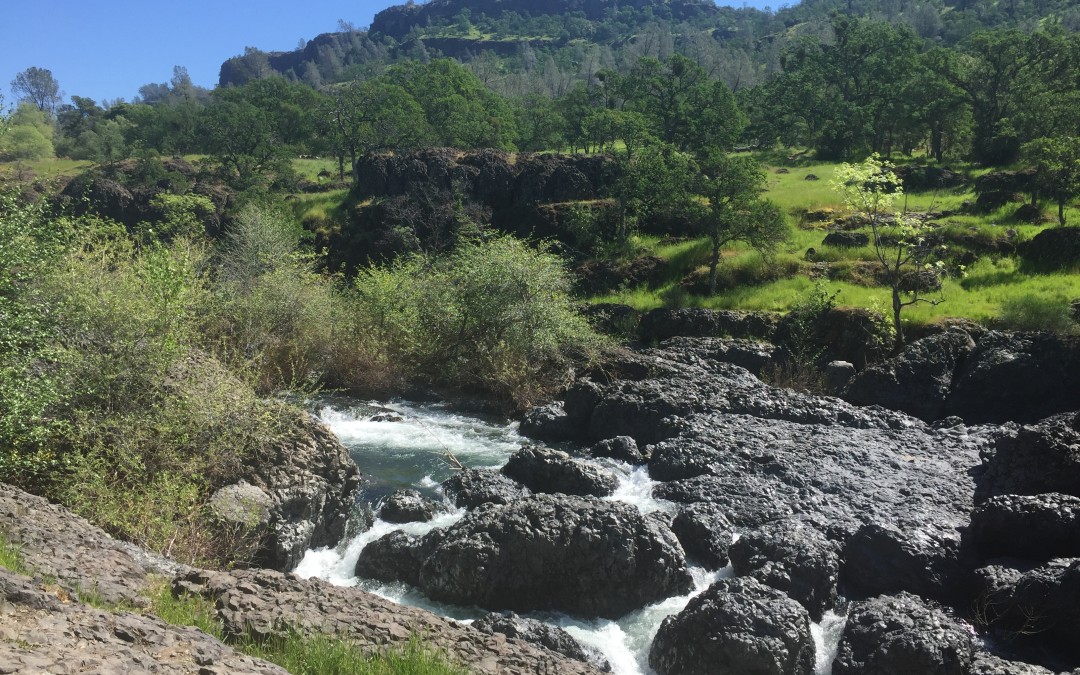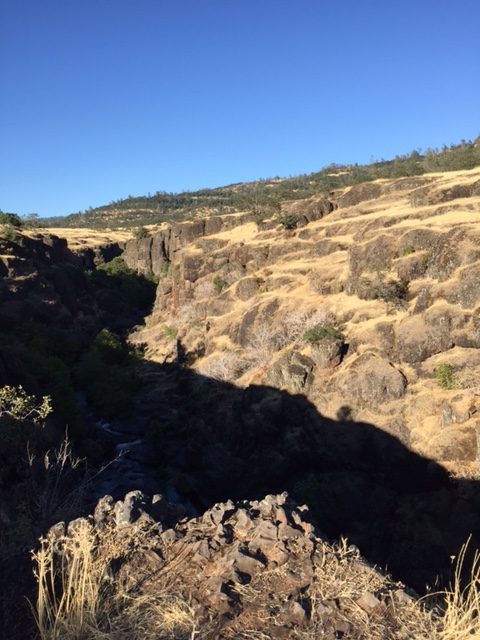After sitting for an hour overlooking the canyon and gorge beyond town, the alertness of a meditative state may well have saved me from getting bitten by a rattlesnake. One inattentive step on a familiar and frequented path in Upper Park, and I would have been on top of the rattler, with deadly consequences.
 I don’t know which one of us sensed the other first, but as soon as I saw the rattler in the shadows on the path a few feet ahead, it gave me fair warning with its half-dozen rattles. There was, naturally, a moment of fear, but fear was instantly supplanted by intense curiosity, and strangely, affection.
I don’t know which one of us sensed the other first, but as soon as I saw the rattler in the shadows on the path a few feet ahead, it gave me fair warning with its half-dozen rattles. There was, naturally, a moment of fear, but fear was instantly supplanted by intense curiosity, and strangely, affection.
A good-sized specimen, the rattlesnake was supremely confident, and leisurely made its way off the path into the brown grass and thick underbrush. It didn’t coil, but rattled its warning whenever I drew near, even as it slowly slithered out of sight.
It was evening, and various animals were coming out after the hot day. A little earlier, as a line of deep shadow was thrown from one side of the gorge to the other, I watched a trio of woodpeckers forage in the top of an oak tree a few meters below, their black and white heads with red caps glistening in the sun.
A chipmunk scurried out of its den, and fearlessly came within arm’s length as it nibbled on the flowers of a non-indigenous thistle-weed that overtakes the brown grasses in the fields and foothills during the rainless summer here.
With thought deeply quieted in intense, inclusive and effortless watchfulness, I found myself almost holding my breath before the beauty of the cliffs above and the gorge below. Parts of the gorge were still ablaze in late-day sun, while dark volcanic slabs in other places were made even more angular by the shadows.
To be nothing is everything. Finding oneself beyond the known after an hour’s undivided, undirected observation is a tremendous thing.
To be sure, the spontaneous ending of thought/time can be a disconcerting, sometimes fearful phenomenon, even for adept meditators! Everything you know, everything you think you are, is suddenly gone in the complete ending of self and emptying of memory and experience.
But if one remains with what is, including and especially one’s fear, one soon realizes that emptiness is the ground from which everything flows and in which everything is. There is no self that feels connected through ‘inter-being;’ rather, in being nothing—no thing—one is inextricably part of everything. This totally impersonal state of being in emptiness is love.
Sophisticated people are applying Buddhist and New Age concepts about the timeless nature of reality to salve harsh temporal realities. The world, however, must be met without recourse to notions of higher reality. The truth of impermanence cannot be used as a balm for man’s destruction of the earth and the human spiritual potential.
Under the guise of ‘impermanence,’ the loss of peoples’ souls, and of the human spirit, is being rationalized. Such an attitude isn’t acceptance; it’s resignation. It isn’t ‘growing up;’ it’s immaturity. It isn’t “stripping away the unreal to show us the real;” it’s whitewashing decay.
The attitude that “everything that can be lost will be lost” is a quitters’ creed. Resignation, dressed up as “grieving our losses fully, like ripe human beings,” has become all the rage on the West Coast, as defeat gives way to despair, and despair to comforting notions of “impermanence—life’s only promise to us.”
These disturbing insights came with an invitation to attend the second annual Men’s Elder Gathering in southern Oregon, which I participated in last year. Where last year’s theme was “Confronting Climate Change” however, this year’s theme can be summed up by the bumper sticker, “I feel so much better now that I’ve given up hope.”
Of course, dropping the flippin’ hope/despair coin is one thing, and “dancing the wild dance of no hope” another. That’s the concluding line in the poem, “The Dakini Speaks,” by Jennifer Welwood, which “the planning group is using to set the tone for the 2016 gathering.”
Basing a men’s gathering on the voices of women, as both last year’s and this year’s meeting have done, attests to how thoroughly men have lost their voices.
It’s good that women have found their own voices. Men however, have lost theirs. It isn’t that women can only speak to women and men to men. It’s that men have quit en masse, whereas women haven’t had the luxury of doing so. As a rule women are emotionally stronger than men.
Men need to get up off their metaphorical (and often literal) butts and begin finding their own voices in the growing chaos of this world.
The salvation of the individual and humanity is through digging our own wells within, and tapping into the infinite wellspring of insight available to all women and men.
Martin LeFevre


